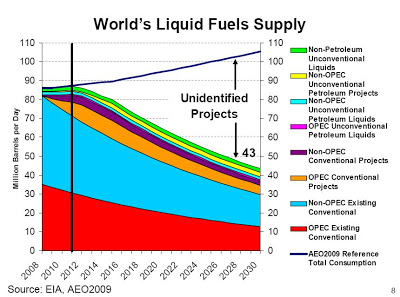A friend of mine recently said that intellectual honesty often requires imagining the worst. Of course, in the study of climate change and natural resources one needs only to read the analyses of scientists to imagine the worst.
Imagining the worst in not necessarily the same as believing the worst is inevitable or even likely. It can be merely a standard part of both scenario and emergency planning. Of course, imagining the worst can also be a double-edged sword with a sinister edge, sometimes eliciting Richard Hofstadter's paranoid style of politics.
When we imagine the worst concerning our political opponents or our enemies (sadly often placed into the same category), this is merely a reflex designed to justify our own hatreds and also a tool for broadly smearing those with whom we disagree. Clearly, this is not the same as seeking out solid evidence and using logic to construct a worst-case scenario.
In scenario planning the whole point is to consider seriously a range of possible outcomes and formulate plans for dealing with those outcomes. For example, the U.S. Energy Information Administration (EIA) reference case for world oil production (defined as crude oil and lease condensate) shows it rising from about 76 million barrels per day (mbpd) in 2012 to 99.5 mbpd in 2040. The low production case is 92 mbpd and the high production case is almost 103 mbpd.
You may feel that this range doesn't reflect more extreme scenarios, but at least the agency offers a range. Some forecasters pretend to know to the second decimal point the future of oil production and reserves decades hence. It's hard to put this down to anything but hubris.
Compare these forecasts to a forecast based on much sounder data, this one made by an EIA researcher in 2009 about how much oil we would have to find and deliver to meet rather extravagant future demand expectations:

The researcher demonstrated that we will have to find more than five new Saudi Arabias by the early 2030s (or 2040s if demand growth slows somewhat as the EIA anticipates) if we are going to fill the gap between production from existing fields and expected future demand (in this case for so-called total liquids which include natural gas plant liquids and other non-oil items).
He based this on the estimated average production decline rate of 4 percent per year for existing fields, a fairly conservative number given that other estimates range as high as 6 to 9 percent. We know with a fair degree of accuracy what existing fields will on average be producing decades hence because we have a long series of actual field data.
This graph looks more like imagining the worst than the other forecasts. Without being hyperbolic, this one graph suggests that our confidence that future oil production will match our expectations--and that therefore we will NOT need to plan for a disappointing outcome--deserves considerable scrutiny.
What imagining the worst can do is allow us to discern the risks in our lives and our futures, collective and individual. This does not have to be a glum exercise. We can, as the saying goes, prepare for the worst and hope for the best. We can prepare responses to any anticipated challenges as a positive way forward.
The naturally optimistic disposition of humans tends to make them critical of those who point out possible catastrophic downsides, especially when those observations conflict with business-as-usual. But it is the ability to hold in one's mind both optimistic promises and the possibility of catastrophic failures that makes for intellectual honesty.
It is intellectually honest to acknowledge that we live in a tragic universe. Things often don't turn out for the best. The future of humankind is not assured either by technology or by religious prophecy (and sometimes it is hard to tell them apart). But, we can learn to live with uncertainty and risk without living in fear.
This piece on the so-called high-reliability organization tells us that "[t]o avoid failure we must look for it and be sensitive to early signs of failure." That is just prudence.
But we live in an age where unchecked technological optimism is treated as prudence, and intellectual honesty is treated with disdain. Questioning is not the same as gainsaying. But the questions are frequently batted away with protestations that "you just don't understand."
I am reminded of the film Melancholia in which the severely depressed character turns out to be the sane one in the face of global catastrophe. You don't have to be depressed to begin questioning the path we are on. But if depression comes from imagining the worst, then you have come by it honestly.
It will be hard in the years ahead to be intellectually honest. Like virtue that honesty will have to be its own reward. If you are intellectually honest, you may be made to feel like the narrator of Thomas Hardy's poem In Tenebris II who says: "I think I am one born out of due time, who has no calling here." But you can more easily remain true to yourself when you understand as Hardy does that "if way to the Better there be, it exacts a full look at the Worst."
